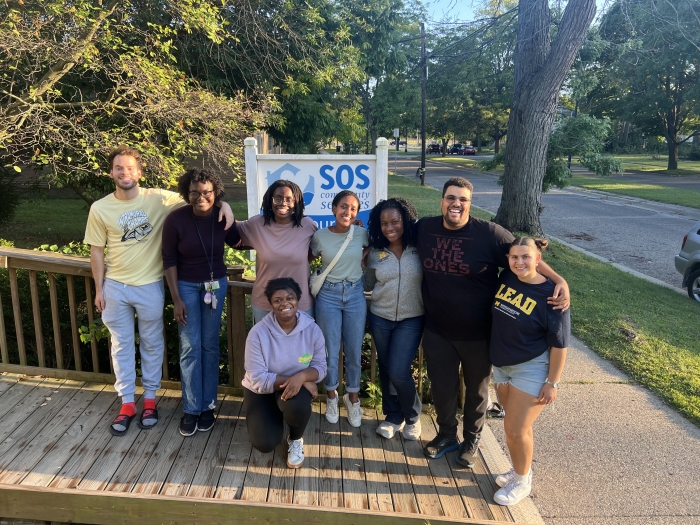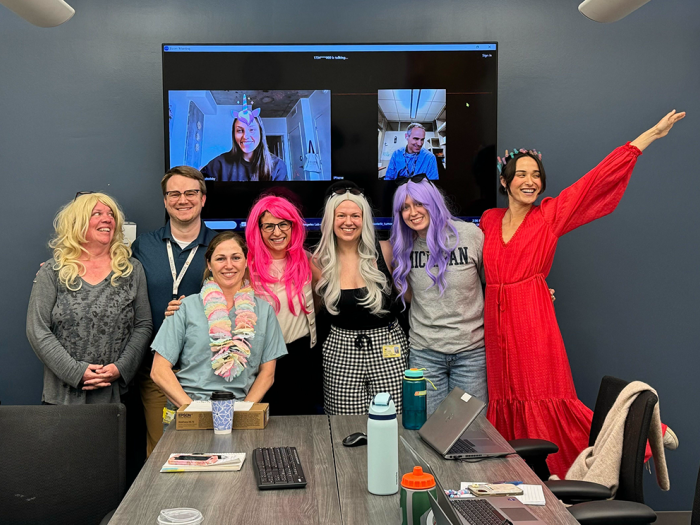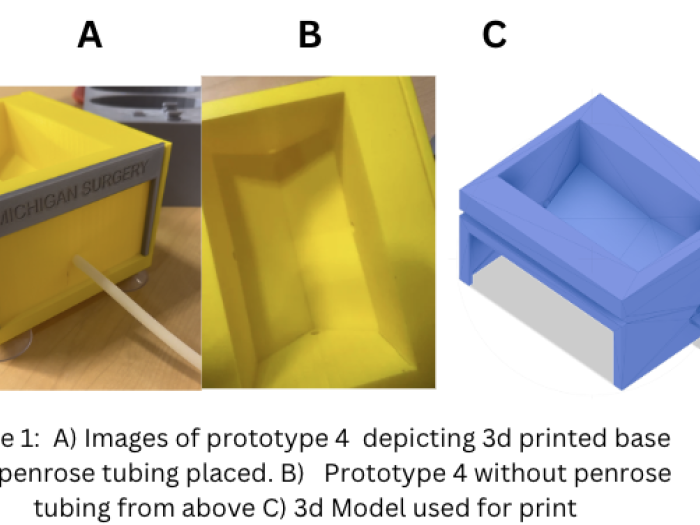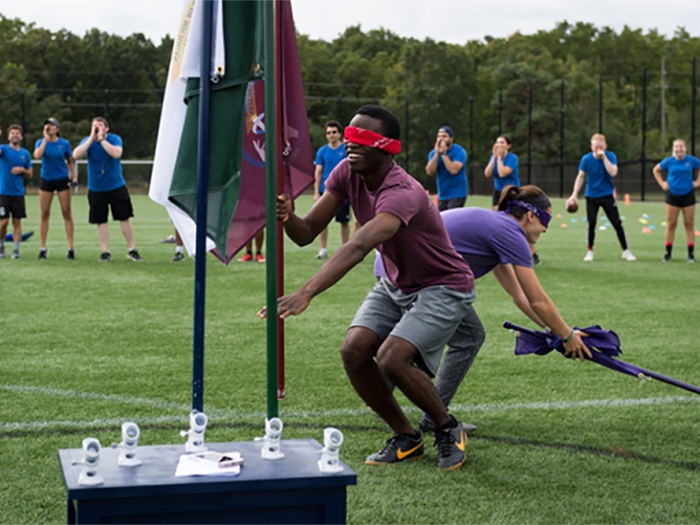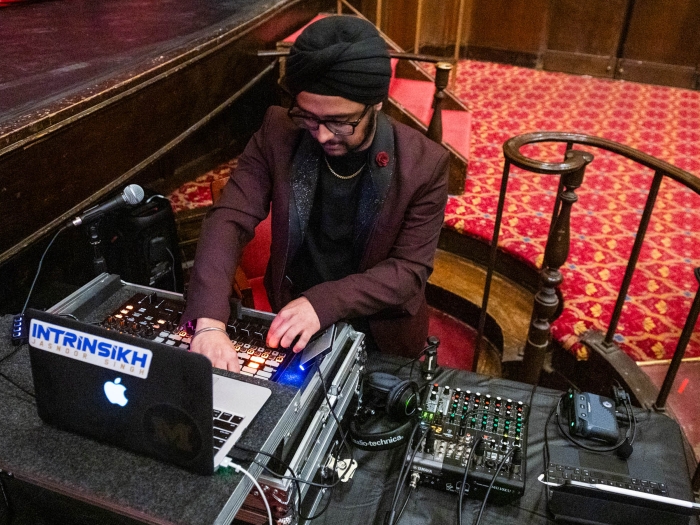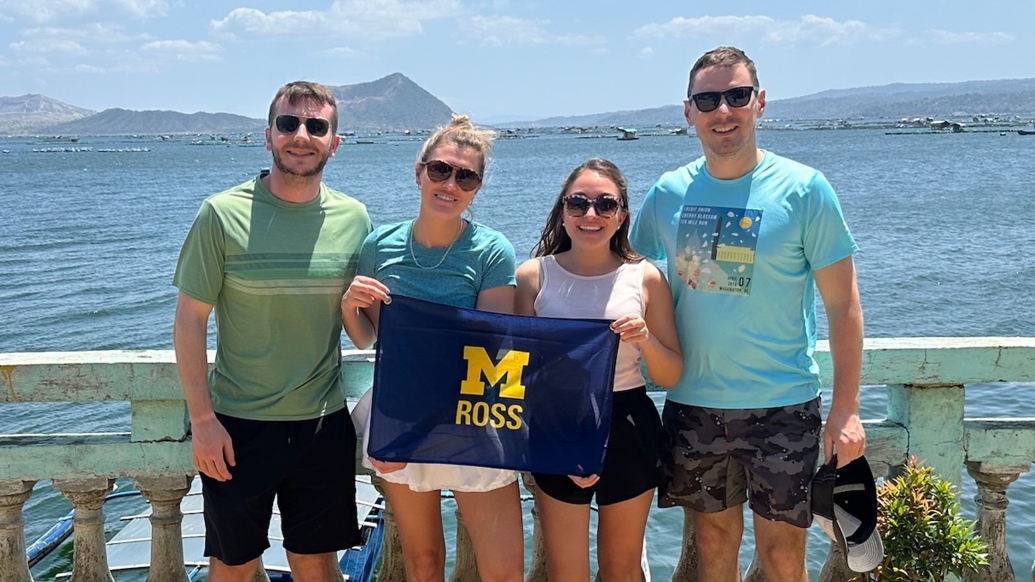
Lauren's Michigan Answer: I’ve been able to pave my own path at Michigan due to the immense resources and support across the university, enriching my perspective of the ways that business and entrepreneurship can improve healthcare access and delivery on a global scale.
Lauren LaMonica (second from the right) is from Boston, MA and graduated from Yale ('18) and the Yale School of Public Health (’19). After participating in the Healthcare Innovation pathway at Michigan, Lauren has been engaged in medical device development and commercialization at Michigan Medicine and globally. She enrolled in a dual degree while in medical school, during which time she gained an understanding of the importance of leveraging a business lens to improve patient outcomes. She encourages others considering a dual degree in medical school to think about their goal, whether that includes gaining certain skills, leadership development, or exposure to a different perspective in healthcare.
What is one thing you wish you would have known before or while going through the medical school application process?
Nontraditional pathways to medicine can equip applicants with a highly unique perspective in the field and when caring for patients. While there is a lot of emphasis on pursuing a standardized pre-medical pathway during college, including completing traditional majors in biology or scribing during summers, the ‘nontraditional’ experiences are often the ones that provide us with meaningful perspectives to become stronger physicians. When looking back at my own college experience, my non pre-med courses—particularly those in Classics—have allowed me to dissect academic literature and analyze situations in a way that many of the traditional pre-med coursework did not. After college, I remember being worried about taking a few years to pursue an MPH and work in data science for a large payor prior to medical school since it was not necessarily a ‘streamlined’ path. The few years that I took to gain both public health and payor perspectives have ended up being some of the most useful healthcare-related experiences I have gained, and I envision these areas as a core part of my practice in the future. I would definitely encourage applicants to seek out opportunities you are passionate about, even if they lead to a non-traditional path!
Describe your favorite elective and why.
Dermatopathology! The dermatopathology faculty here at Michigan are phenomenal teachers—they each dedicated the time when analyzing slides to walk through and point out the histology, as well as pull up photos from clinic so that the entire team could correlate the clinical with histopathologic findings. Sitting at the microscope in the dermatopathology reading room next to faculty and residents made me feel like an important part of the team. Being at a large academic medical center like Michigan also provides students with opportunities to observe and learn from very rare cases.
What is your Path of Excellence, why did you choose to pursue a path, and what have you enjoyed most about taking part in a Path?
At the end of my M1 year, I was eagerly awaiting the opportunity to enroll in a Path of Excellence. The Healthcare Innovation path seemed like the perfect fit to build a strong foundation in innovation and entrepreneurship. From bringing in real patients at Michigan Medicine facing problems requiring an innovative solution to providing a framework for medical students to solve unmet medical needs, the path has served an important role in supporting my innovation and commercialization work here at Michigan. The Healthcare Innovation POE also opened doors to resources, institutes and programs across the university. I became involved in Sling Health, a student-run incubator that brings together multidisciplinary teams of medical, business and engineering students to solve problems in healthcare. After speaking with over 160 surgeons in the Department of Surgery at Michigan Medicine to understand ‘pain points’ in the operating room more deeply, our team developed Surgical ComfORt, an ergonomic surgical retractor system, which was a first place finalist at Michigan Sling Health Demo Day. Throughout the discovery and prototype development process, I gained an appreciation for the immense support that the University of Michigan ecosystem provides student entrepreneurs. After my time working with other medical, business, and engineering students in our Sling Health team, we were able to participate in the Michigan Business Challenge, gaining additional seed funding for our device development, as well as mentorship and feedback from experts in the field. I learned that the support extends even beyond the medical school. Our team was able to participate in programming through the Zell Lurie Institute at the University of Michigan Ross School of Business, including the Pinkert Healthcare Accelerator and Dare to Dream Program, which provide a healthcare innovation curriculum coupled with longitudinal mentorship and grant funding.
Share the research activity(ies) you’ve become involved in at Michigan.
After participating in Sling Health and the Michigan Business Challenge, our team recognized the severity of the burden of ergonomic injury among surgeons, creating an even greater momentum to devise a meaningful solution. I’ve been able to serve as a team lead for PostOR, developing a wearable ergonomic sensor to provide real-time, intraoperative feedback on ergonomic behavior to surgeons. Participating in the Michigan Surgical Innovation Accelerator (MSIA) course, led by Dr. Rishi Reddy and Candice Stegink, has been one of the highlights of my time in medical school, allowing me to work with incredible faculty surgeons, Drs. Kristin Chrouser, Tasha Hughes, Jeffrey Kozlow; resident urologists Drs. Mark Farha (MD/MBA ’22) and Renee Cole; and learn from materials science engineers and experts in the sensor space. Through the MSIA program, our team was able to launch a cross-sectional study in the Department of Surgery characterizing ergonomic strain and understanding predictors of intention to use a wearable ergonomic sensor device.
On a slightly different end of the spectrum, I’ve been particularly interested in questions related to access to and reimbursement for biologic therapy, as well as the role that payers can have in supporting clinical and cost outcomes for patients. The Department of Dermatology has played an important role in these research interests, allowing me to connect with Drs. Mio Nakamura, Sara Fossum, Jennifer Mancuso, and Milad Eshaq, alongside a fantastic fellow classmate, Michael Tang (M3), to design a study to investigate early conversion to biologic therapy in patients with hidradenitis suppurativa (HS).
Why did you decide to earn a dual degree while in med school, what has the experience been like, and what advice do you have for others who are considering a dual degree in medical school?
Prior to medical school, my work with one of our nation’s largest payor, pharmacy benefit manager, and retail pharmacy—CVS-Aetna Health—exposed me to the importance of a multi-stakeholder approach to improving clinical outcomes for patients. In my role at CVS, I realized that while I was laser focused on patient outcomes, I lacked a deep understanding of the business priorities and incentives at a large enterprise, which I later learned are very important towards designing interventions and other initiatives to improve patient health. While I knew that I wanted to pursue an MBA at some point during training or a career, it was not necessarily ‘top of mind’ during my M1 year, and I am fortunate that the medical school curriculum provides the time for students to really deep-dive into their interests and determine if a dual degree is the right path.
I am really happy with the decision to pursue an MBA at the Ross School of Business alongside the medical school curriculum, and while I am far from an expert at analyzing cash flow statements, I think the MBA has afforded me with important leadership development skills to hopefully allow me to be a better co-resident in the future or leader in healthcare. I would encourage others considering a dual degree in medical school to carefully think about their goal in pursuing a dual degree—is it to gain a certain technical skill set, leadership development, exposure to a different perspective in healthcare, networking opportunities or something entirely different?
Share the global health opportunities you’ve had while training at Michigan.
I recently completed a term-long multidisciplinary action project (MAP) at the Ross School of Business as part of the MBA program. MAP is a unique aspect of the MBA program that allows students to work full-time with companies to solve real business challenges. For seven-weeks I was able to work with my classmates to develop a commercialization pathway for technologies stemming from the Technological Institute of the Philippines (T.I.P.). This project was a partnership with the William Davidson Institute, which drives economic development and supports business needs in low- to middle-income countries.
Our team traveled to Quezon City, Philippines in March to speak with T.I.P. faculty, students and members of their TechnoCoRe Catalyst team to understand how their current curricula and programs are driving commercialization activities. Over the course of our time in the Philippines, we were able to speak with student innovators across all engineering disciplines. From technologies that sense the readiness of cacao for harvesting to those that leverage virtual reality for disaster preparedness, engineering students at T.I.P. provided me with a wealth of knowledge on the commercialization process. Working with T.I.P. also allowed me to come ‘full circle,’ now focusing on strategies to support student and faculty innovators in bringing their ideas and products to market.
…And of course, our MBA team found time to explore the Philippines, trying lots of Filipino dishes, exploring the incredible biodiversity and finding the world’s smallest active volcano (Taal).
How/why did you become involved in First in Family?
My first generation college background has been an important part of my identity. During my M1 year, I was connected to M4s who were also first-generation college and low-income (FGLI) students and interested in building support for a community for the 11% of students in the medical school class who are the first in their families to attend college and an even higher percentage of students who are low-income and socioeconomically disadvantaged. Together, we founded First in Family, an organization that provides the academic, professional, financial and community resources for FGLI students to succeed in medical school and in the medical profession. Over the past few years, First in Family has grown exponentially, building powerful community of FGLI students with a shared identity. The administration and the Office of Health Equity and Inclusion (OHEI) have been incredibly supportive of our efforts, allowing us to launch a Food Packaging Program to provide groceries to FGLI students and an MCard Supplemental Food Assistance Initiative to provide meals for students on clinical clerkships.
First in Family has also been able to work closely with the DEI Pathways programs across various specialties in dermatology, urology, general surgery, and ophthalmology and I would highly encourage incoming FGLI students to seek out mentorship early through these programs. Gaining advice from faculty who also shared similar experiences or identities is a great way of navigating the hidden curriculum during medical school and gaining exposure to different specialties!

